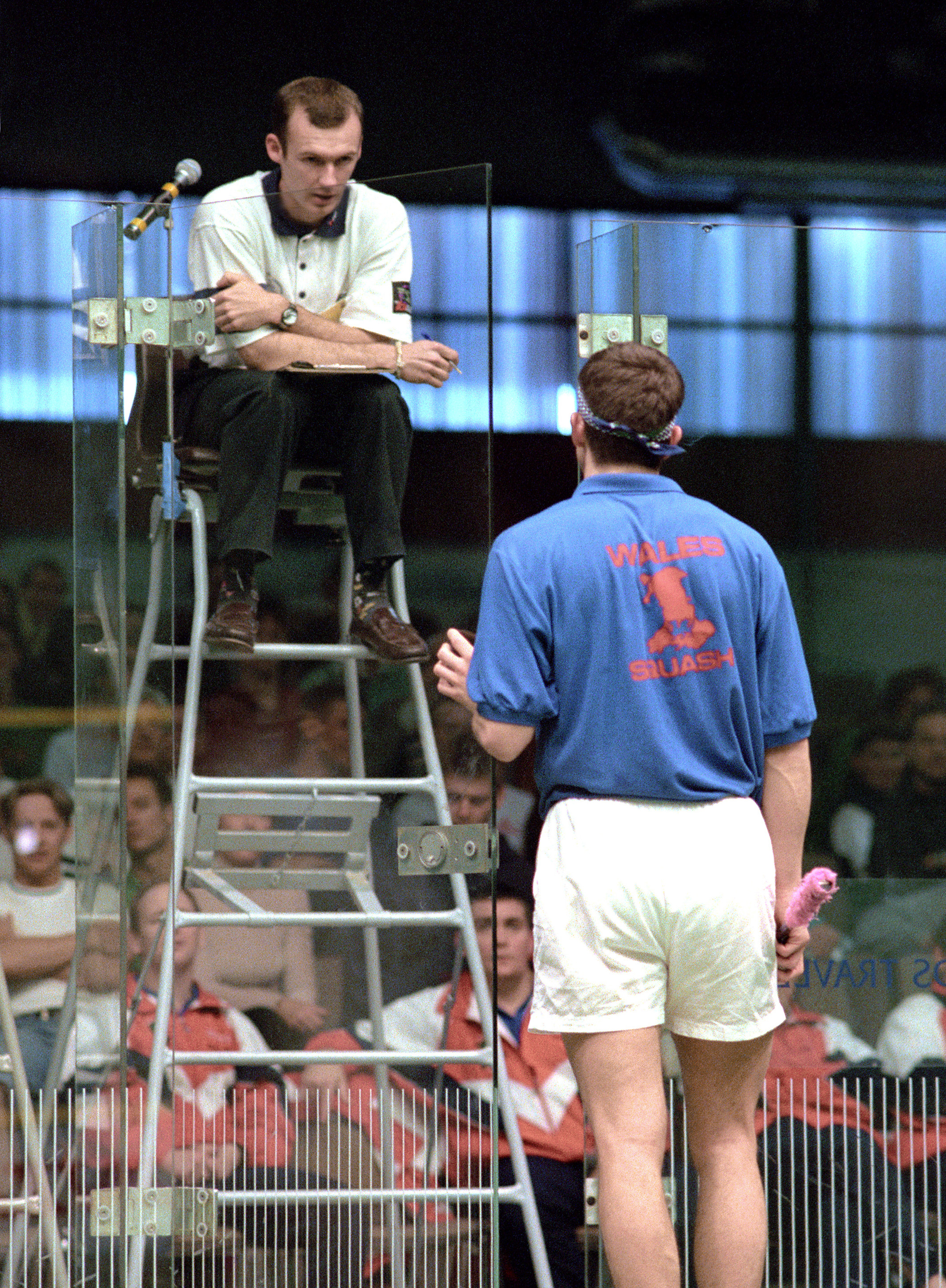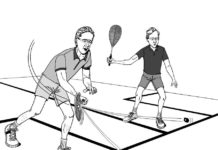By Rod Symington, WSF Referees and Rules Committee
This month we have yet another amazing story from the Wonderful World of Squash. Admittedly, squash is a very complex game, with arcane terminology and eccentric rules. But some things are elementary – or so I thought, until I read this month’s submission.

“Here’s a scenario for you,” wrote the Editor, “that I saw at the US Skill Level Championships.”
A young player (a junior, actually) was playing in the Men’s 5.5 skill levels. With the score 10-9 in the first game (in his favor), his opponent hit a ball tight along the left wall. The kid barely got to the ball (but did so clearly to everyone watching). In scraping the ball off the wall, he hit a dropshot to the left front. The opponent had already moved to the right front thinking that was the only place the ball could go. He made no attempt to get to the ball at the left front, so the kid won the game 11-9.
However, the opponent then proceeded to plead his case to the referee saying that he thought the ball was down. The referee said the ball was good, 11-9, and the kid walks off the court. After pleading his case some more, the opponent then switches to: “Well then, we have to play a let because I stopped. I thought the ball was down.” He then continued with his argument that he had stopped playing, so a let should be played.
To everyone’s dismay, the referee finally capitulated and, after 90 seconds, told the kid who had come back to the court that they were going to play a let. The opponent then won the point and ultimately the game.
So what can we learn from this? First, that the Referee made a bad decision. Once a game is over and the players have left the court, there can be no appeal about anything that happened in that game. The Referee was wrong to order the last rally to be re-played, even if the complaining player had been correct (which he wasn’t). If you wish to appeal about something (e.g., that the ball is broken), do it before you leave the court. Leaving the court at the end of a game or a match signifies: “I accept that the game (or match) is over.”
Second, it is clear from the described scenario that the player was beaten and lost the rally. To say: “I stopped because I thought the ball was down” is nonsense. The ball was not down, and you made a mistake in thinking it was. This is no different from any other mistake you make on the squash court, like hitting the tin, or serving the ball out.
Third, whatever happened to fair play? In the above scenario there is only one possible course of action for the player: admit you lost the rally and the game, and get ready for the next game. Convincing the Referee that the last rally should be replayed on totally spurious grounds is unworthy of any fair-minded player. Once again we have a match for which the score will be entered in the record book with an asterisk: *Game won unfairly.
Are we making progress? Are players becoming more knowledgeable about the Rules? Is the standard of refereeing improving? I used to think so, but when I read about episodes such as the one described above, I have my doubts. Are such episodes aberrations? And if not, what can we do to improve matters?





